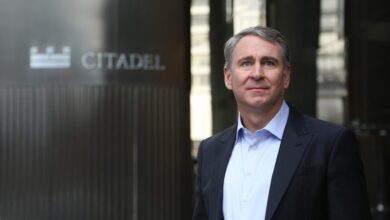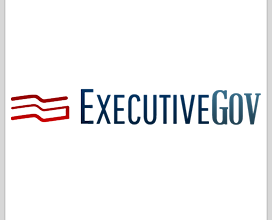New Treasure Valley angel fund would act as investment recruitor


Burdened by what the investment community calls a lack of organization amongst investors, one Treasure Valley group is taking aim at two birds with one fund.
At first glance, the Treasure Valley Angel Fund is similar to the only operating angel fund in Idaho, the Boise Angel Fund. But new rules negotiated with the Idaho Department of Finance allow the fund to not only raise capital for small investments in early stage companies, but also to advertise for new investors.
Under regular rules, the advertising would force most investors to register their shares in the fund, an expensive process that is rarely used in angel funding. The process can be useful in recruiting new angel investors and broadening a startup company’s access to capital, said Earl Sullivan, executive director of The CORE, a nonprofit aimed at organizing a health care-based industry in Idaho.
“The opportunity is to get people aware of angel investing, what it is and how to get involved,” Sullivan said. “We have a lot of individual investors out there, I don’t think in some cases that they know how to get involved with the other groups (available).”
If the fund, or any subsequent funds using the new rules, are successful, fund supporters plan to take the idea to the state Legislature.
“At this point, there aren’t any rules and there isn’t any statutory authority … for this. What they are doing at this point is sort of experimental,” said Richard A. Reilly, a Hawley Troxell attorney who helped negotiate the new rules. “They wanted to have a couple of test cases, so when they go to the Legislature they can say we’ve had success with this.”
With a $2 million cap, investors can buy one or several shares into the fund at $50,000 a share. Members vote on what companies to back and benefit from turning their in smaller equity investment into a diverse portfolio of different businesses.
Idaho Department of Finance Securities Bureau Chief Marilyn Chastain said her agency was more than happy to help set up the new fund, especially after direction from Gov. Butch Otter to take steps that could help small businesses.
Chastain, along with Patricia Highley, a senior securities analyst with the Department of Finance, worked with The CORE officials to negotiate the rules for the new fund.
Angel investing typically only has about a 10 percent investment success rate, but the returns for a successful investment are huge. Investors often pool their money and invest in industries where the investors already have experience.
Sullivan said that experience is used to mentor entrepreneurs.
“It’s a lesson in reality that they have to go through with the angels that have the history and the experience and the gray hair to say, hey, this is what you’re going to get into,” he said.
The CORE isn’t investing in the fund and won’t operate it, Sullivan said. It’s expected to be up and running by the end of March.
If that’s the case, it will be a significant source of funding for entrepreneurs who have seen much of the startup capital in the valley dry up in recent years, including the venture capital fund Highway 12 and, soon, the Boise Angel Fund, Sullivan said.
“Although we have a fund in the state of Idaho, the Boise Angel Fund, it is at the end of its life,” Sullivan said. “The challenge we face right now is the entrepreneur looks outside the state for funding and gets pulled outside the state because they don’t have anyone to come to.”
That source of funding would take care of the first problem the fund hopes to address, a lack of capital.
Kevin Learned, a founder of the Boise Angel Fund and co-owner of Loon Creek Capital Group LLC, which will handle administrative duties for the fund, said that outside the Boise Angel Fund, which has invested most of its capital already, there are few options for startups and very young businesses in the Treasure Valley.
“To my knowledge, there is no organized source of this early stage capital in the valley,” Learned said.
Sullivan said that $2 million isn’t the silver bullet that will end Idaho’s startup capital drought, but the nature of the new fund could make a dramatic difference in recruiting investors.
He said that The CORE has blazed a trail with the Idaho Department of Finance, agreeing on terms for the policy so that other funds can follow their path without too much strain.
“Although it hasn’t been easy for us … I believe that the subsequent funds that come up are going to come up a lot faster,” Sullivan said. “I think you’ll see the second, third, fourth fund fall maybe this year.”
Chastain said anyone interested in setting up a similar fund should contact the Department of Finance Securities Bureau.
“No one can rely on the order that was given to The CORE, but we’re certainly open to looking at proposals from others who might want to raise money that can provide the kinds of assurances in terms of protecting investors,” she said.
By advertising the fund, or having the ability to speak to the media about it, Sullivan and others believe that they can organize potential investors.
Learned said there is a “natural reluctance” by many potential investors to jump into angel investing because of its high risk-reward structure and other complex elements. He said having public meetings about the funds, for example, could go a long way toward convincing Idahoans that angel investing is something they could pursue.
As of now, he said, there only appear to be about 25 people writing checks to businesses in the state.
“If we look at the statistics, there are plenty of millionaires in Idaho,” Learned said, referring to the net worth required to be an accredited investor. “And we know that many, many people are uncertain about how this works, how to protect yourselves, you never want to be the only person making an investment in a company.”
The ability to persuade some of those people to join the fund would soothe some of those fears, he said.
The fund set up by The CORE will use only accredited investors, or those with more than $1 million in net worth – not including home value – or an annual income of $200,000 or more.
Eased Angel fund rules require a trade-off
The Treasure Valley Angel Fund received exemptions from securities regulations in order to stimulate investing in the Boise Metro area, but negotiating went both ways.Investors must have their primary residence in Idaho. Assets bought with the fund must be kept in Idaho for at least nine months, said Richard A. Riley, a Hawley Troxell attorney who helped negotiate the new rules. In addition, strict disclosure laws must be followed.
Idaho Department of Finance Securities Bureau Chief Marilyn Chastain said the new rules were approved after regulators were convinced investors were protected in what can be a risky venture.
“If people are told that a deal is extremely risky and they are likely to lose all of their money, and they choose to invest, we don’t have an issue with that,” she said.
Angel investing is known for having a low rate of success, but successful investments can provide huge returns.
Chastain said regulators can suspend certain parts of securities law, such as a ban on advertising, if they can offer the same protection and the group proposing the changes can show it will be good for the community.
Earl Sullivan, executive board chairman for The CORE, which negotiated the rules changes with the Department of Finance, said working out the details for the new fund with Idaho regulators has taken time and patience. The biggest change is the advertising allowed in the new fund. Publicity, such as speaking to the media about the fund, would not be possible under the current rules using the fund’s existing structure. It’s still limited.
“You don’t want to create infomercials and things like that, but you want to have appropriate avenues to get that information out,” Sullivan said.
The first $750,000 of the $2 million fund will be placed in escrow. No investments will be made until that money had been gathered.
The rules imposed by regulators can be a bit a of setback for a fund, said Kevin Learned of Loon Creek Capital LLC, which is handling the money and other support work for the fund.
“You can only sell to Idaho residents, that’s a minor disadvantage. You obviously would like to take money from anyone who is interested,” Learned said.
Unless an easy process is set up through the Legislature, the process to obtain permission to start a similar fund will not be as efficient as a traditional angel fund, he said.
Sullivan said the first fund will only sell to accredited investors, or those with $1 million in net worth — not including home value — or $200,000 in income per year. That goes along with current regulations regarding security sales.





